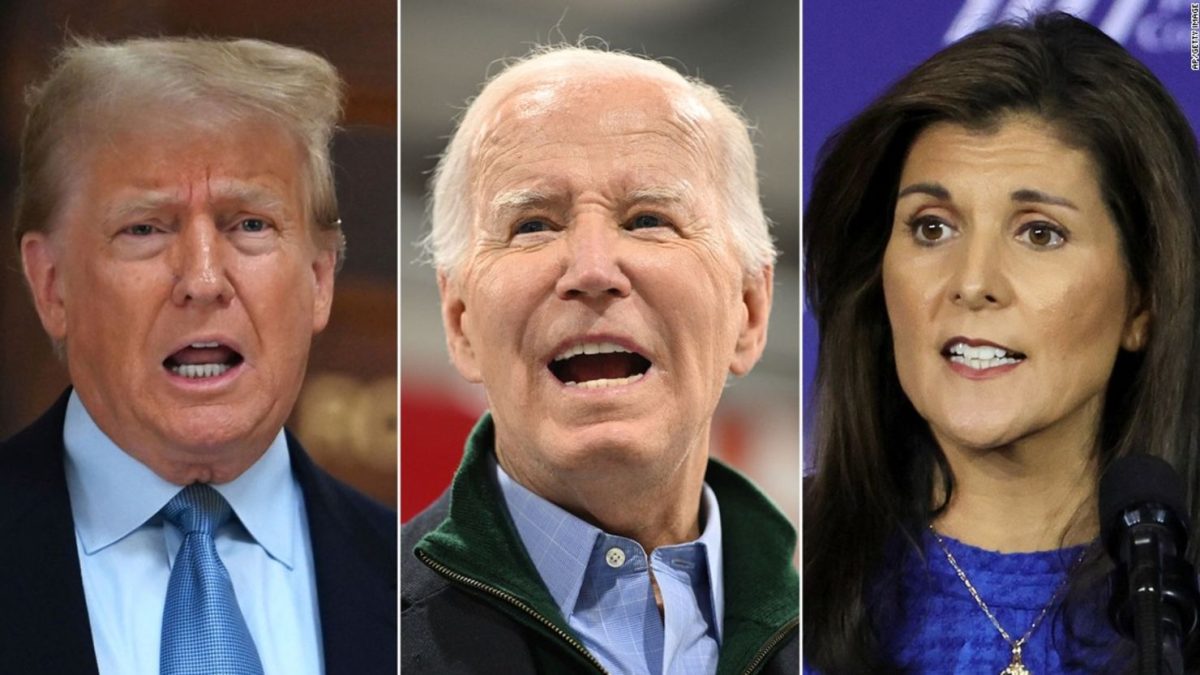The 2024 election season has officially begun starting with the Iowa Caucus that took place on January 15th and the New Hampshire Primary on January 23. Both Republican elections were landslide wins for former President Donald Trump, and the Democratic election in New Hampshire was a win for current President Joe Biden by a near a fifty percent margin.
These early primaries are incredibly important when there is not an incumbent president for the party. Based on early primary results, many candidates will drop out of the race. This is why many have been asking whether or not Iowa and New Hampshire should be starting the election season. Neither state is incredibly diverse nor boasts a large population. Iowa has six electoral votes and New Hampshire only has four (the largest population belongs to California which has a total of 54 votes). Is it really fair that two of the smallest states in the union are making such a large impact on the election? This year, the impact has been significant with the Republican party only having two candidates left in the race: former President Trump and former South Carolina Governor Nikki Haley. The Democratic nominee will be incumbent President Biden if he does not drop out of the race.
Former president Trump is currently beating Nikki Haley in the polls, but she has an advantage. Her name and candidacy are not appearing in lawsuits across the country. As of January 31, Trump’s candidacy has been challenged in thirty-five states. In Colorado and Maine, the decision to take Trump off of the primary ballot has been approved at the state legislature, but it has since been appealed and the Supreme Court will hear the case against Colorado on February 8th. Sixteen of the states have dismissed the challenge, but large states such as California, Texas, New York, and Florida are still resolving the challenges.
Trump also recently lost a defamation lawsuit in which he had to pay over $83 million to journalist E. Jean Carroll for denying sexual assault allegations, tarnishing her career as a reporter. The former president also faces charges of 91 felonies in four different states. He is most notably being charged with business fraud in New York (trial set for March 25), 132 counts of unlawful retention of national defense information and one count of conspiracy to obstruct justice in Florida (trial date pending), four counts in relation to election interference and conspiracy to defraud the United States in Washington D.C. (trial set for March 4, this is also a federal case), and election interference in Georgia (trial date pending). Now, there is no law that states that a convicted felon cannot run for president and subsequently serve. If Trump wins the election after being convicted, however, it will most likely hurt the United States’ global stance. The trials in D.C. and New York are set before Super Tuesday, the day the majority of the presidential primaries take place. Additionally, polls have already been sent out to Republican voters regarding the possibility of Trump’s conviction. Of those polled, 30% said they would not vote for the former president if he is found guilty.
Besides Trump’s potential jail time, the heavily debated topics of the primaries and the presidential election will surround artificial intelligence, immigration, and abortion rights. Trump pledged to take a strong stance on the current immigration crisis, saying he will implement a mass deportation and implement an executive order that ends birthright citizenship, which comes from the Fourteenth Amendment. He also has an extreme stance on education, planning to abolish the Department of Education while wanting to punish districts that have vaccine mandates and encourage prayer in public schools, the latter of which having been deemed a violation of the First Amendment’s establishment clause by the Supreme Court.
Nikki Haley wants to restore Trump-era immigration policies, a federal 15-week abortion ban, and the end to education surrounding systematic racism and sexuality and gender. She is also somewhat vague surrounding her stance on issues and how she plans on executing them in an attempt to appeal to a larger audience. Haley’s policies do not appeal to the majority of American voters, who largely identify as moderate or not strongly conservative. This was even reflected in the Nevada primary where she lost without being challenged by a candidate. 63% of voters marked “none of these candidates”. Now, this primary does not count as Nevada awards their delegates through a caucus, but the results are still telling. President Biden has planned to continue his economic plan of “Bidenomics”, further restricting access to assault rifles and expanding the legal protection of the LGBTQ+ community. He also plans to restore the precedent set in Roe vs. Wade, federally protecting a woman’s right to choose.
It is important to remember that neither parties’ candidate is certain. The Republican and Democratic National Conventions will take place over the summer where both parties will announce their official candidate, but it is looking like it may be Biden vs. Trump again.




